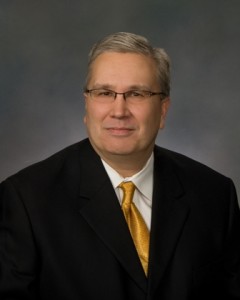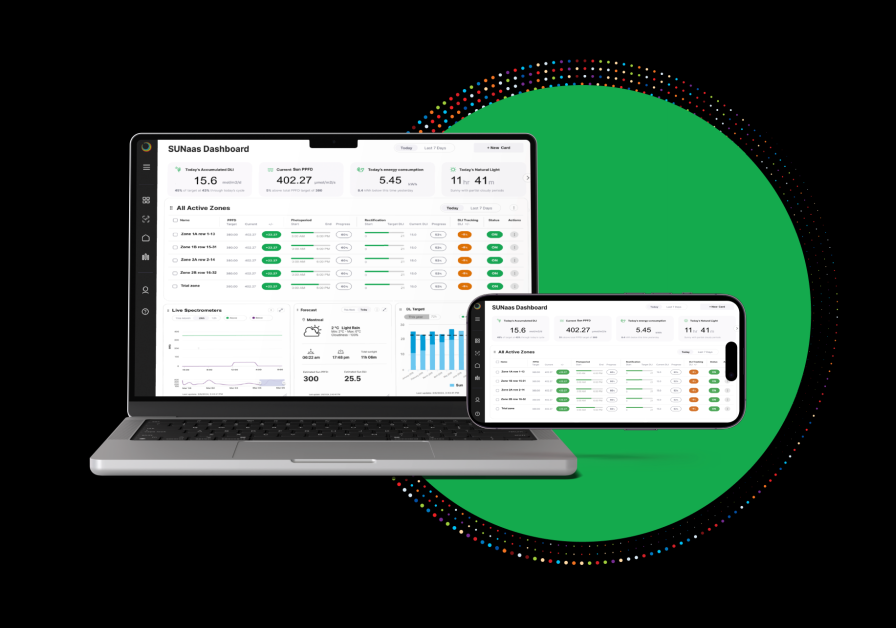Online Only: BenchPress Profile On Dean Chaloupka

Dean Chaloupka, who served Floral Plant Growers (FPG) as CEO since 2001 and spent the last 25 years with the company, recently embarked on a new career with an industry consulting firm called the Visions Group. Now 47, Chaloupka recently shared some thoughts on the career change and discussed a few hot-button industry issues with us.
What motivated you to pursue a career change after such a lengthy career with FPG?
“The decision to step down as the president of Floral Plant Growers was based on looking ahead and taking a look at what I expect to be the second half of my career. What would I want to do for the next 25 years? What type of job would excite or motivate me each and every day? I enjoyed a great career at Floral Plant Growers. Obviously, there’s a lot of emotion tied in to a career there. But, what did I want to do and get involved in?
“I view now as a time to make a change, one that positions myself and allows me to use, as well as broaden, my experience within the industry. I want to more actively get involved in what I think will be interesting and complex issues for members of the horticulture and floriculture industries to deal with and to help develop and provide solutions.”
What kind of activities were you engaged in with the Visions Group while at Floral Plant Growers?
“The Visions Group was specifically involved in and worked with us on our Veriflora certification and sustainability initiative. We also engaged the Visions Group to serve as advisors.
“As an advisor to the management team and the board of directors, they helped to provide alternative views and insight we might otherwise not have or consider: What is going on in the industry? How do you approach big box retailers? What are the needs and the processes involved with pay-by-scan?
“Visions really served as a sounding board and advisory group to the management team and board of directors on many issues involved with managing through very challenging times. They helped us a lot with that, so hopefully that’s what I can continue to do for Floral Plant Growers as well as others going forward.”
Are growers calling up advisors like a Visions Group now more than ever, or are they scaling back to improve their bottom lines?
“Both. As can be imagined, two things happen in times like this: Growers become very introspective and look to eliminate a someone like the Visions Group, which is very short term in its approach. It does initially save on the bottom line, but what you’ll usually find is these organizations have big issues and problems to deal with and are actually making things worse by not getting independent advice, views or potential solutions.
“Progressive companies in these types of times seek out additional input and information to help them deal with the myriad of issues they face. They understand it can be complex and seek the necessary help to deal with it or before it gets out of control.
“That can be dealing with customers, how to find more customers, an approach to employee relations and employee issues. It also means staying on top of the trends within the industry. These growers not only survive but become stronger when they come out of the tougher economic times.
“Hopefully, number one, we, and groups like us, can provide those types of services that assist and provide exponential returns as compared to what is spent. It is also important for them to understand that it’s better to seek more information even if not from a paid consultant than to stop seeking it and trying to solve every problem by themselves. They also must feel comfortable being able to open up to someone outside their company and even being vulnerable.
“People in this industry are known to be very independent minded, and I have seen firsthand both the positive and negative results that can come from that trait.
“These are some very stressful times, so it’s not only important for companies to look at how we’re going to survive in the short term, but to be poised as the industry turns toward the future. The industry may not look the same in five years, and it will be important for people to understand how they can position themselves to be successful not only today but over time. That starts today, not five years from now. Hopefully, we can help them do that.”
Can you paint a picture of the industry 25 years from now?
“I think there’s going to be some very fundamental changes going on. There will be evaluation of our practices, adaptation to new processes and innovation. I think it will take place on a couple of fronts. Number one, the distribution model in our industry is going to change and I mean specifically how products are taken to the places they are sold.
“I look at mainly supply to large retailers: I don’t know who’s going to win and lose 25 years from now, but I look at growers and the trucking models in place today with every grower delivering direct to the retailers, and it’s a very fundamentally flawed model.
“Many, and I will say, a vast majority of trucks, are being run empty on their way back to the growers. This waste and its associated cost cause growers to deliver many times in volumes that are efficient for trucking but not efficient for sell-through, product quality and appearance at the stores. Consumers will be more discriminate with their purchases and I believe the market will demand that the model contributing to this waste and poor appearance of product change over time.
“The recycling of plastics is another big issue. I know there’s a huge debate going on about using sustainable or non-carbon-based products in our packaging, and we may or may not move in that direction. It may be that we continue to use plastic, which some may advocate, but it makes no sense that there is no recycling program in place that’s efficient and, more importantly, that consumers can understand as well as be compelled to use.”
“Lastly, I believe as an industry we will come around to figure out that packing or creating a unique identity will need to happen at shipping. Yes, I believe this concept will also apply to most bedding plants, not just potted plants which have adapted to this over the recent past.
“Today, our production process in the name of efficiency and cost reduction has this done when the product is assembled but before it is grown. This is weeks and months before the ultimate consumer demand is confirmed, as weather and competitive forces cause change.
“Creating the unique identity of the product after the plant is grown in the form of packing will allow for matching of this process to within hours of anticipated demand and eliminate wasted production or other missed sales opportunities. It will also allow for broader market and customer diversity for suppliers if a way is found to implement it. This would eliminate the risk of one specific customer backing out on commitments and allow for product to more easily be moved to another customer.
“I do believe that over the next 25 years we will have an environment where retailers and suppliers will work together to solve these issues. Too many times today, they look at each other and say it is the others’ issue to fix or find a solution. Those (retailers and supplies) that continue down that path will in all likelihood be gone or less relevant in the lawn and garden marketplace due to this attitude.”
Will the demands of retailers continue to increase as we move toward the future?
“Retailers are going to continue to demand or request those products or services they feel the consumers want or position them as the preferred choice among their competitors. They want to create a unique identity in the eyes of the consumer who visits their store. I don’t know if growers or the industry should expect that to change. That’s part of retailing and positioning yourself as a retailer. They will also ask for whatever they feel will make them more profitable. This shouldn’t be a surprise to anyone. They’re going to continue to put those demands on the growers and suppliers.
“The question should be: How do you supply those needs yet at the same time, do it in a way that allows you to remain profitable as well? To do that, I think it means eliminating the waste that has been a big part of the industry over the last 20 years.
“We, as an industry, just went along happily and gleefully supplying products. The retailers were the ones who said “grow the products and ship them to us because we have this growing demand. We have an ever increasing number of stores to supply. Retailers were willing to take the risk, and if there was extra product, they threw it away yet still paid the grower for it.
“Ultimately, there was not an understanding that there was oversupply to these retailers, or, if it was understood, little thought was given to future ramifications.
“Three to four years ago, the retailers have said they will no longer take the risk of having too much product and throwing it away. They pushed that risk to the suppliers, in addition to the message that undersupply or lost sales would not be tolerated.
“I think we have seen how the pendulum of risk swung and the financial upheaval it has caused with growers. I believe that it will take one to two more years to sort out at which time both the growers and retailers will move forward with a better understanding of not what is to be demanded of each other, but what is needed by each for both to prosper going forward.”










